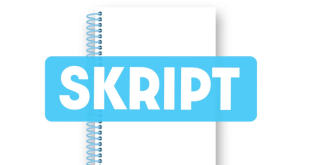Introduction
Within the bustling world of education, teaching assistants (TAs) play a crucial role in supporting teachers and enriching the learning experience for students. However, for those seeking a more hands-on and impactful position, the role of a Higher Level Teaching Assistant (HLTA) offers a unique blend of increased responsibility and exciting career prospects.
What is L4 HLTA Course?
The Level 4 Higher Level Teaching Assistant course equips aspiring educators with the knowledge, skills, and qualifications to take on a more prominent role in supporting teachers and student learning. It’s a stepping stone for those seeking a fulfilling career within the education sector, offering a dynamic blend of practical experience and theoretical grounding.
Eligibility and Course Structure:
This qualification is typically aimed at individuals already working as teaching assistants or those with relevant experience in education settings. Entry requirements may vary, but often include a minimum level of English and mathematics qualification and some prior experience working with children.
The course itself is delivered through a combination of classroom learning, independent study, and practical placements in schools. The program duration can range from several months to a year, depending on the provider and study mode (full-time, part-time, online).
Core Content and Skills Development:
The curriculum delves into various aspects of modern education, focusing on areas critical for effective classroom support. You’ll gain in-depth knowledge of:
- Child Development: Understanding the social, emotional, and cognitive development of learners across different age groups.
- Curriculum and Assessment: Developing a strong grasp of the national curriculum frameworks and various assessment strategies to effectively measure student progress.
- Teaching and Learning Styles: Exploring different pedagogical approaches and learning styles to cater to diverse student needs.
- Special Educational Needs (SEN): Equipping you with the tools and strategies to support students with various learning difficulties.
Emphasis on Practical Skills:
The course doesn’t just focus on theory. Through coursework and placements, you’ll gain practical skills in areas like:
- Lesson Planning and Delivery: Collaborating with teachers to develop engaging lessons, plan learning activities, and deliver them effectively.
- Classroom Management: Mastering techniques for creating a positive and productive learning environment, managing student behavior, and fostering a sense of discipline.
- Differentiation: Learning to tailor teaching approaches to meet the individual needs and learning styles of students.
- Data Analysis and Reporting: Understanding how to interpret student data and use it to inform teaching strategies and interventions.
Benefits and Career Progression
Successfully completing the Level 4 HLTA course equips you with a recognized qualification, making you a highly sought-after candidate for HLTA positions in schools. Becoming an HLTA offers several advantages:
- Increased Responsibility and Impact: You’ll have a greater influence on student learning, taking on a more strategic role within the classroom.
- Professional Development: The course and your work as an HLTA provide valuable on-the-job training, honing your skills and knowledge base.
- Leadership Opportunities: The role prepares you for future leadership positions within schools, like lead teaching assistant or even teacher.
- Rewarding Career Path: Supporting student development and contributing to a positive learning environment can be immensely fulfilling.
If you’re passionate about education and seek a career path that allows you to make a tangible difference in the lives of children, then the Level 4 HLTA course might be the perfect first step on your journey.
Expanded Responsibilities: Beyond the Basics
Compared to a traditional teaching assistant, an HLTA takes on a wider range of duties. TAs often focus on tasks like preparing resources, assisting with classroom management, and providing one-on-one support to students. HLTAs, on the other hand, have a more strategic and independent role.
Planning and Delivery: One of the key distinctions is the level of involvement in lesson planning. While TAs might assist with basic materials preparation, HLTAs can collaborate with teachers to develop learning activities, tailored to different learning styles and student needs. This extends to delivering these activities, taking the lead in small group sessions or even leading entire classes under the teacher’s guidance.
Assessment and Progress: HLTAs play a more active role in assessing student progress. This goes beyond simply marking assignments. They can design and implement formative assessments, analyze student data to identify strengths and weaknesses, and provide feedback to inform future teaching strategies.
Taking Charge: Perhaps the most significant difference lies in the ability to cover classes independently. This allows teachers dedicated time for planning, marking, and professional development. HLTAs, equipped with a deeper understanding of the curriculum and classroom management techniques, can effectively lead the class during these periods, ensuring a smooth learning experience for students.
Unique Opportunities and Growth Potential
The expanded responsibilities of an HLTA translate into a plethora of opportunities for professional development and career progression.
Developing Expertise: Working closely with teachers, HLTAs gain a deeper understanding of pedagogy, curriculum development, and assessment practices. This on-the-job training fosters expertise in specific subject areas or special educational needs, opening doors to future specialization.
Leadership Skills: Leading small groups and taking charge of classes hone valuable leadership skills. HLTAs learn to manage classroom dynamics, motivate students, and effectively communicate complex concepts. These skills are highly sought after in the education sector, paving the way for potential promotion to lead teaching roles.
Mentorship and Collaboration: HLTAs often provide guidance and support to other teaching assistants. This fosters a collaborative learning environment for all staff, and allows HLTAs to develop their mentoring skills, a valuable asset in any leadership role.
So, is an HLTA role right for you?
This position is ideal for individuals passionate about education and eager to take on a more significant role in shaping young minds. Strong subject knowledge, excellent communication skills, and a genuine desire to support student learning are essential qualities. The ability to work independently while collaborating effectively with teachers is also crucial.
Considering a career path as an HLTA? Here are some additional questions to ponder:
- What age group or subject area are you most interested in working with?
- Do you enjoy working independently and taking initiative?
- Are you passionate about fostering a positive learning environment for all students?
The road ahead: A Fulfilling Journey
The role of an HLTA offers a rewarding and stimulating environment for those seeking to make a real difference in education. The combination of increased responsibilities, leadership development opportunities, and a stepping stone to further advancement in the educational field makes it a compelling career path. For those with the dedication and passion, becoming an HLTA can be the key to unlocking a fulfilling and impactful journey within the world of education.
The Article in a Glimpse
Higher Level Teaching Assistants (HLTAs) play a more significant role than traditional TAs. They collaborate on lesson planning, deliver activities, and independently lead classes, freeing up teachers’ time. HLTAs actively assess student progress and use data to inform teaching strategies. This expanded role fosters expertise, hones leadership skills, and creates opportunities for mentorship. Individuals passionate about education, with strong subject knowledge and communication skills, are ideal candidates. If you enjoy working independently, taking initiative, and creating a positive learning environment, consider becoming an HLTA. This role offers a rewarding path for those seeking to make a real impact in education, with opportunities for professional development and advancement into leadership positions.







